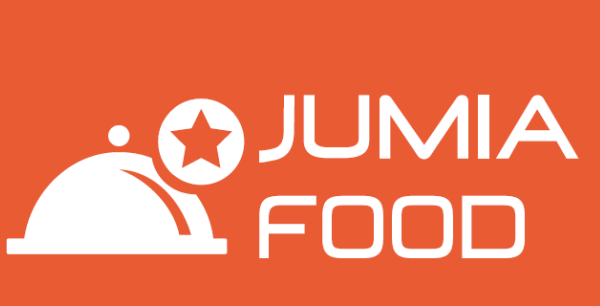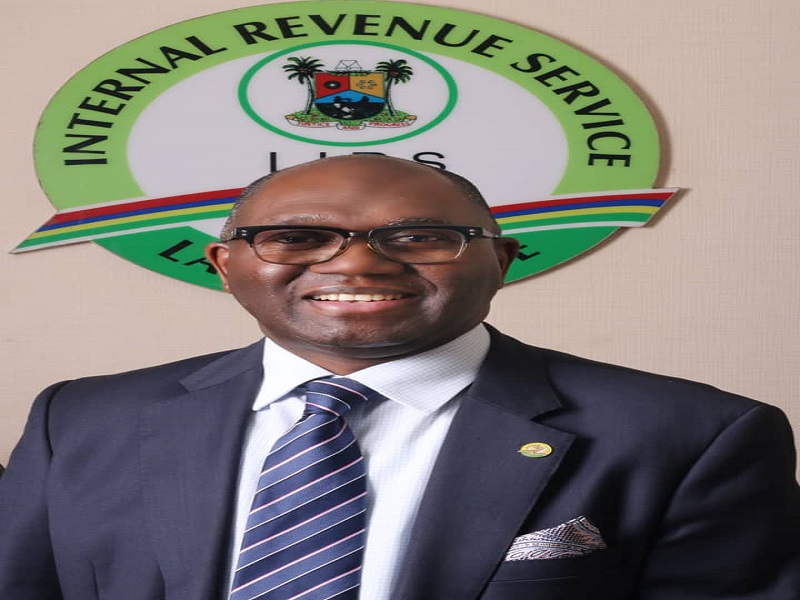News
Jumia’s Nigeria Food Index Shows Growth in Online Delivery

Jumia has published its first Nigeria Food Index, showing the impact of the coronavirus (COVID-19) pandemic on food trends in Nigeria.

The report, released over the weekend, shows that the online food delivery is changing habits in unexpected ways for businesses and consumers due to the pandemic.
It further shows that the growing popularity of fast food, coupled with the growing trends for convenience and value for money, have opened up opportunities for the food market in Nigeria.
The report indicates that the country’s agricultural sector experienced a major boom in 2019, significantly responsible for the 90.23 percent contribution made by non-oil sectors to Nigeria’s GDP.
The index further shows that the food and grocery retail market had total revenues of $44.9 billion, representing a compound annual growth rate (CAGR) of 8.7 percent in the last eight years.
Similarly, the report indicates that overall grocery retailing continues to expand, as consumers seek comfort and convenience when shopping for food. The food segment was the market’s most lucrative, with total revenues of $33.7 billion, equivalent to 75 percent of the market’s overall value.
Also, online food delivery is gaining momentum through companies such as Jumia Food. With the outbreak of the COVID-19 pandemic, the demand for food rose significantly, especially online food delivery as a result of the lockdown and social distancing guidelines. This was because many people relied heavily on food delivery as opposed to physical shopping in grocery markets.
The report highlighted two major drivers of the growth observed in 2020 – demography and the COVID-19 lockdowns. While with a growing population averaging 18 years old, a new generation of Nigerian middle class consumers are spending more money online on food and grocery services, the lockdowns induced by the COVID-19 pandemic also contributed to this evolution in habits.
The report further highlighted that, while most restaurants are popular in Lagos, Abuja, Port Harcourt and Ibadan, Lagos leads in terms of volume of online food orders. It also shows, among others, that pizza, Chinese and shawarma are the most promising cuisines; lunch leads in the time of orders with 65 percent; weekdays record the biggest volume in orders, peaking on Wednesday at 16 percent; males place more orders (56 percent) than females (44 percent); and Port Harcourt leads in delivery timing at 26 minutes.
The Index also shows that, while Kentucky Fried Chicken (KFC), Cold Stone Creamery and Pizza Hut come out as the most popular international brands in the country due to consumers’ proclivity to chicken-related orders, Chicken Republic, The Place, Kilimanjaro, Sweet Sensation and Drumstick are the most popular local food vendors due to the affordability of their offers.
Jumia, the leading e-commerce platform in Africa, explains that the positive trend recorded in the agricultural sector offers the prospect of increased jobs, greater prosperity, reduced hunger and improved opportunities for Nigerian farmers and entrepreneurs to participate in the global economy.
Over the years, Nigeria’s growing online audience has seen an increase in international brands setting up shop to tap into the growing middle-income segment. Direct investments from players such as KFC, Cold Stone Creamery and Pizza Hut have been achieved.
Online food delivery players such as Jumia have also played a key role in shaping supply chains and opening up the markets to new entrants. Local producers and restaurants have embraced this evolution and reached new consumers as well as grown their businesses in spite of these challenging times.
“This pandemic crisis has shown the world that online food delivery is not just a commodity, but a necessity. The food business adapted quickly to the new normal, by availing contactless and cashless deliveries,” said Shreenal Ruparelia, Chief Commercial Officer, Jumia Food.
“We also started to provide support to local food vendors to keep their businesses running during this difficult time. With our food partners, we will continue to deploy capabilities across the food value chain to ensure consumers buy food online safely and at the right price, in line with the theme of this year’s World Food Day celebration of ‘Grow, Nourish, Sustain Together,’” added Shreenal.
Nigeria’s population is expected to double over the next 30 years at a growth rate averaging around 2.3% a year. With its diversification plan from oil production, the country is set to witness growth in a large consumer market, such as the food and grocery retail market.
Jumia Food is Africa’s largest Food delivery company operating in 9 countries in the continent. The consumers can order restaurant meals, groceries, drinks, pharmacies, and supermarkets, having then delivered in less than 45 minutes.
News
Firms Commit to Boost African Robotics Market

AfricAI and Micropolis Robotics have signed a multi-year exclusive distribution and deployment agreement, which marks one of the continent’s most significant robotics market entries.

Micropolis AI Robotics is a United Arab Emirates-based robotics manufacturer operating in autonomous systems, while AfricAI is a company building practical, revenue-driven artificial intelligence (AI) systems for African businesses, governments, and global partners operating in emerging markets.
According to the agreement, Micropolis Robotics named AfricAI as its exclusive continental partner, prohibiting direct sales, alternative distributors, and third-party agents from operating in the territory.
The partnership establishes AfricAI as the primary execution, localisation, and go-to-market platform for intelligent robotics in Africa’s industrial, security, logistics, and infrastructure sectors.
AfricAI said this exclusive mandate positions the company as the gateway for advanced autonomous systems entering African markets, ensuring regulatory compliance, local capacity building, and sovereign control over deployment frameworks.
The partnership, according to the two parties, moves beyond software- based AI into the realm of physical AI — intelligent machines capable of operating in complex, real-world African environments.
“This is not a collaboration, it is a market-shaping mandate,” said Fareed Aljawhari, CEO of Micropolis Robotics. “AfricAI now represents the exclusive gateway through which Micropolis technologies enter Africa. Their sovereign AI vision, operational reach, and regulatory fluency make them the only partner capable of executing at a continental scale.
Furthermore, the agreement enables AfricAI to integrate Micropolis’ autonomous robotics systems with AfricAI’s sovereign AI stack, resulting in AI-powered security and surveillance platforms, robotics-enabled logistics and port operations, industrial automation, smart infrastructure, and municipal robotics tailored to African operating conditions.
Initial deployments will commence in security, smart infrastructure, and logistics, with phased expansion across multiple African states as part of AfricAI’s broader continental AI, data, and intelligent infrastructure strategy.
The agreement also includes long-term performance-linked expansion rights, automatic renewals, and a defined localisation framework to support robotics deployment, workforce training, and skills transfer across Africa.
Prince Malik Ado-Ibrahim, executive chairman of AfricAI, said: “Africa does not need imported automation — it needs sovereign, context-aware intelligent systems. This exclusive mandate allows AfricAI to industrialise robotics deployment at scale while retaining control, compliance, and value creation on the continent.”
News
Subair: LIRS Won’t Raid Accounts – Unless You’ve Lost Every Court Battle

Lagos State Internal Revenue Service Executive Chairman Ayodele Subair Tuesday demolished online panic over alleged bank account raids, insisting the agency’s “Power of Substitution” targets only hardcore tax dodgers who have exhausted every appeal from tribunals to the Supreme Court over half a decade of disputes.

Ayodele Subair
Subair, speaking on Arise TV, shredded viral fears that LIRS would swoop on residents’ savings without warning, clarifying the mechanism under Section 60 of the Nigeria Tax Administration Act 2025 kicks in solely after assessments spark objections, reconciliations, demand notices, and a gruelling courtroom odyssey through High Court, Court of Appeal, and apex rulings.
The LIRS weekend notice had ignited fury by announcing enforcement via third parties – banks, employers, tenants, debtors – to claw back unpaid Personal Income Tax, Capital Gains Tax, Stamp Duties, and Withholding Tax from chronic defaulters holding funds or owing money to them, whether due now or accruing later.
Subair likened the process to a “long timeframe, not less than five years,” where recalcitrant bigwigs who stonewall every step become fair game, with LIRS directing agents like customers or partners to divert payments straight to the taxman in lawful settlement.
Far from arbitrary grabs, the chairman stressed it’s a final resort for “entirely recalcitrant” holdouts who ignore Notice of Refusal to Amend (NORA) and every olive branch, ensuring Lagos coffers snag rightful revenue fuelling the state’s bulging budget without shotgun raids on compliant payers.
As social media buzzes with defiance – “They can’t touch my account!” – Subair’s blueprint spotlights Nigeria’s tax evasion scourge starving subnationals of trillions yearly, with Lagos alone chasing billions in arrears amid federal revenue wars and economic headwinds squeezing the commercial capital’s 25 million souls.
Industry voices nod to the legality but plead for digital dashboards tracking disputes transparently, warning overzealous recovery could spook investors in Africa’s fintech and startup mecca already reeling from naira nosedives and grid glitches.
With LIRS poised to unleash the hammer on vetted violators, Subair’s clarion call aims to separate myth from muscle, bolstering Lagos’ IGR juggernaut that hit N815 billion last year while daring defaulters to test the full judicial gauntlet before crying foul.
News
NIGCOMSAT Adopts Government’s Performance System

Nigerian Communications Satellite (NIGCOMSAT) Ltd, in a strategic move to modernise its operations and foster a results-oriented workforce, has officially adopted the Federal Government’s Performance Management System (PMS).

The initiative, aimed at driving efficiency and institutionalising accountability, was marked by an intensive staff training program designed to align the agency’s operations with national performance goals and the Presidency’s vision for a digital-first public sector.
According to a statement from Stephen Kwande, the Agency’s acting head of Corporate Affairs, “the transition to PMS is a departure from historical evaluation methods. The new system is designed to provide real-time performance tracking and instill a stronger work ethic across all directorates”.
Welcoming participants, Mrs. Jane Nkechi Egerton-Idehen, managing director/CEO of NIGCOMSAT, represented by Abiodun Attah, executive diirector, Technical Services, described the adoption as “long overdue.”
She emphasised that the system is critical for ensuring that NIGCOMSAT contributes effectively to Nigeria’s broader digital economy targets.
In her opening remarks, Mrs. Chinwe Udogu, general manager, Human Resources Management, expressed NIGCOMSAT’s enthusiasm for the program, urging staff to dedicate themselves fully to the three-day training.
She noted that the exercise was pivotal in repositioning the company to achieve its highest aspirations.
The training consultant, Mrs. Njoku Chioma, said the program is expected to drive culture change, automate work processes, and strengthen institutional performance.
The three-day training, jointly organised by the Office of the Head of Service of the Federation and NIGCOMSAT Management, covers key themes including:
• Overview of the FCSSI25 as an institutional performance-driven Federal Civil/Public Service
• Service culture and workplace attitude in the Nigerian public sector
• Implementation of the Performance Management System in NIGCOMSAT
• Application of Artificial Intelligence tools to enhance performance in the Nigerian public sector
The move comes at a time when NIGCOMSAT is expanding its footprint, with recent initiatives like the 2026 SpaceTech Accelerator Programme and partnerships for grassroots digital skills training.
By strengthening its internal management framework, the agency aims to ensure that its technical advancements in satellite technology are matched by an equally efficient administrative engine.

 E-Financial2 days ago
E-Financial2 days agoCBN Upgrades Licences of Opay, Moniepoint, Kuda, Palmpay, Paga to National Status
- E-Financial2 days ago
Nigeria’s 9 Top FinTech Firms Valued at $10.6Bn in January 2026

 News2 days ago
News2 days agoTech Executives Double Down on AI, Talent and Adaptive Strategies to Lead in the Intelligence Age

 E-Financial2 days ago
E-Financial2 days agoNIBBS to Boost Financial Inclusion with Offline Payment Solutions

 News2 days ago
News2 days agoDHQ Indicts Brigadier General Abubakar Sadiq, 15 Others in Alleged Coup Plot againt Tinubu

 E-Business2 days ago
E-Business2 days agoFirm Identifies AI as Common Denominator in Entertainment Industry’s 2026 Security Threats

 General News2 days ago
General News2 days agoWEBINAR: Techeconomy Business Series Hosts Experts from MTN, Interswitch, BusinessPlus, others this Wednesday

 E-Financial1 day ago
E-Financial1 day agoPayPal Goes Live in Nigeria through Paga



























